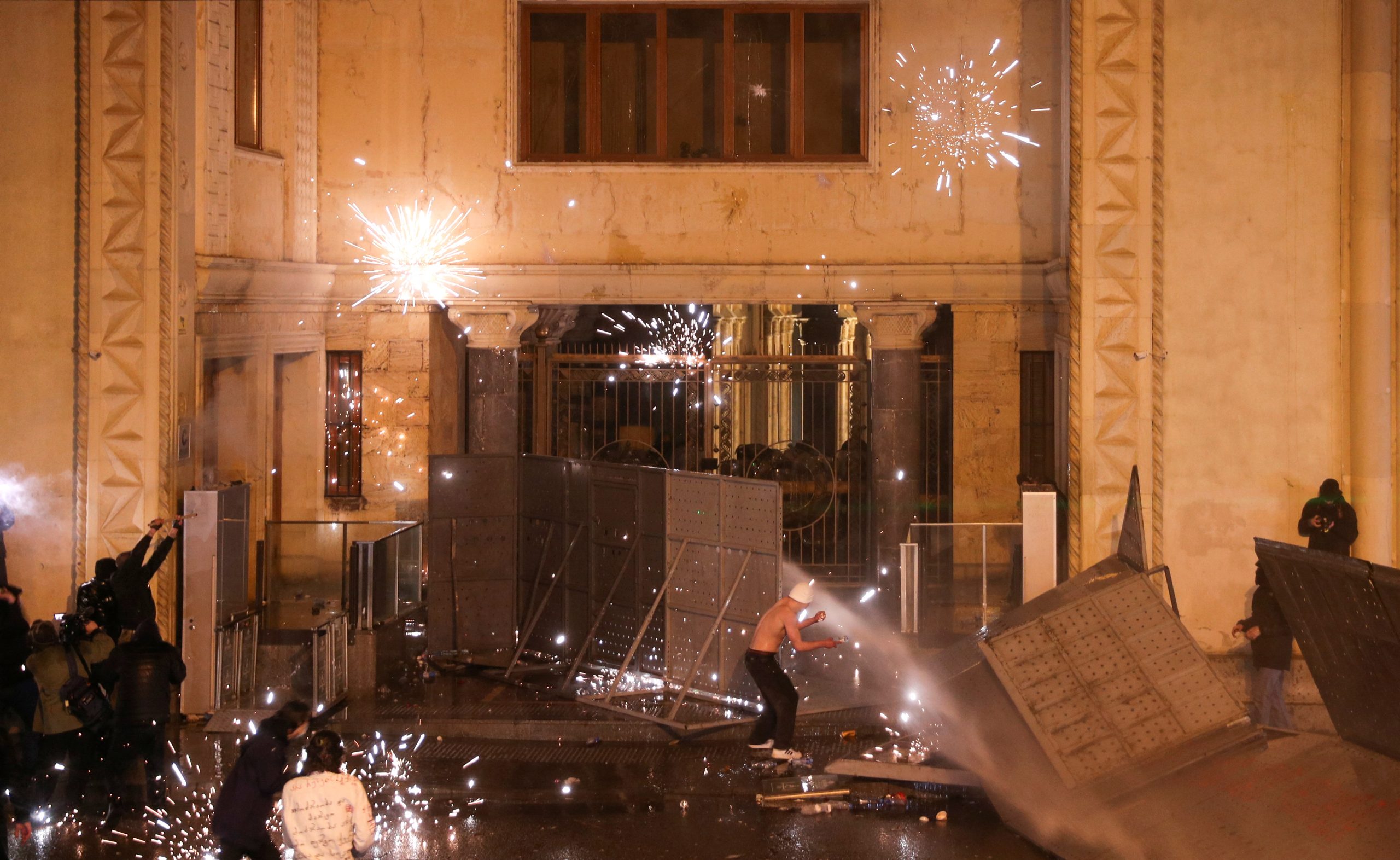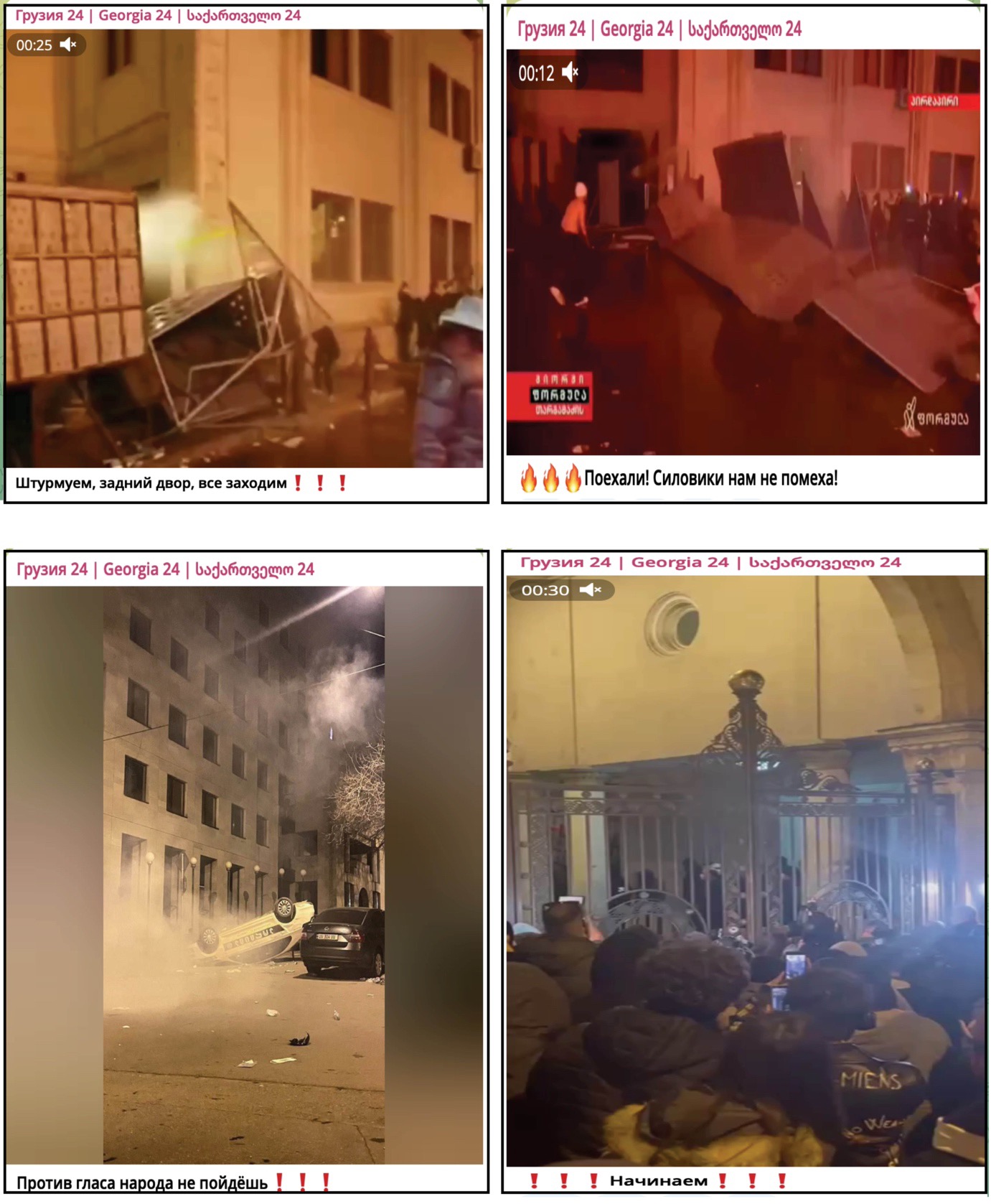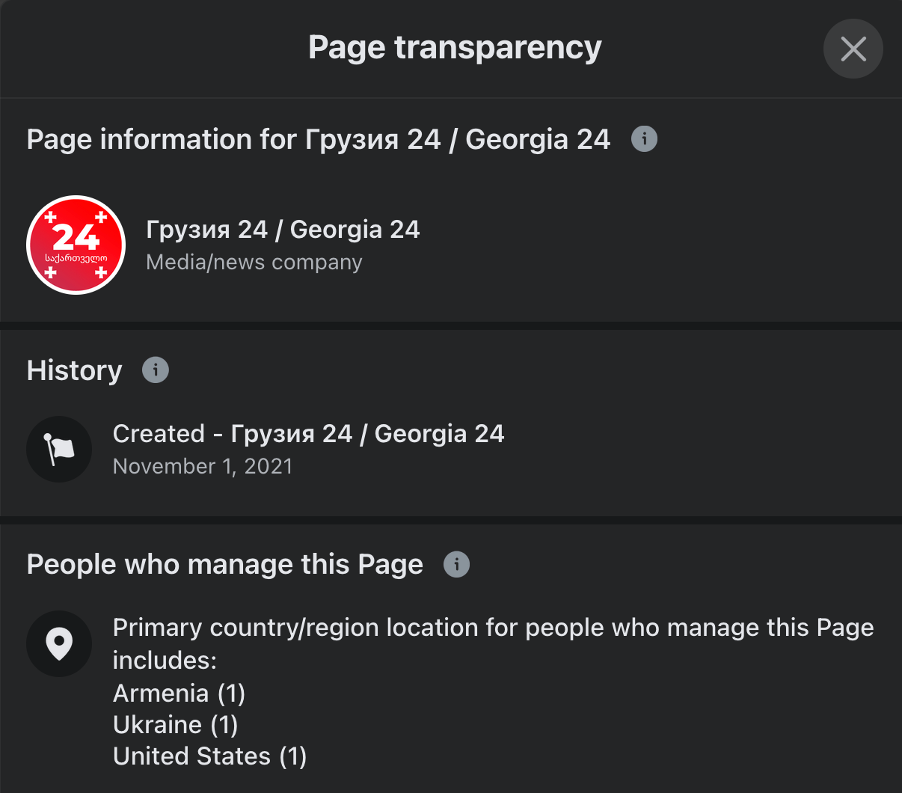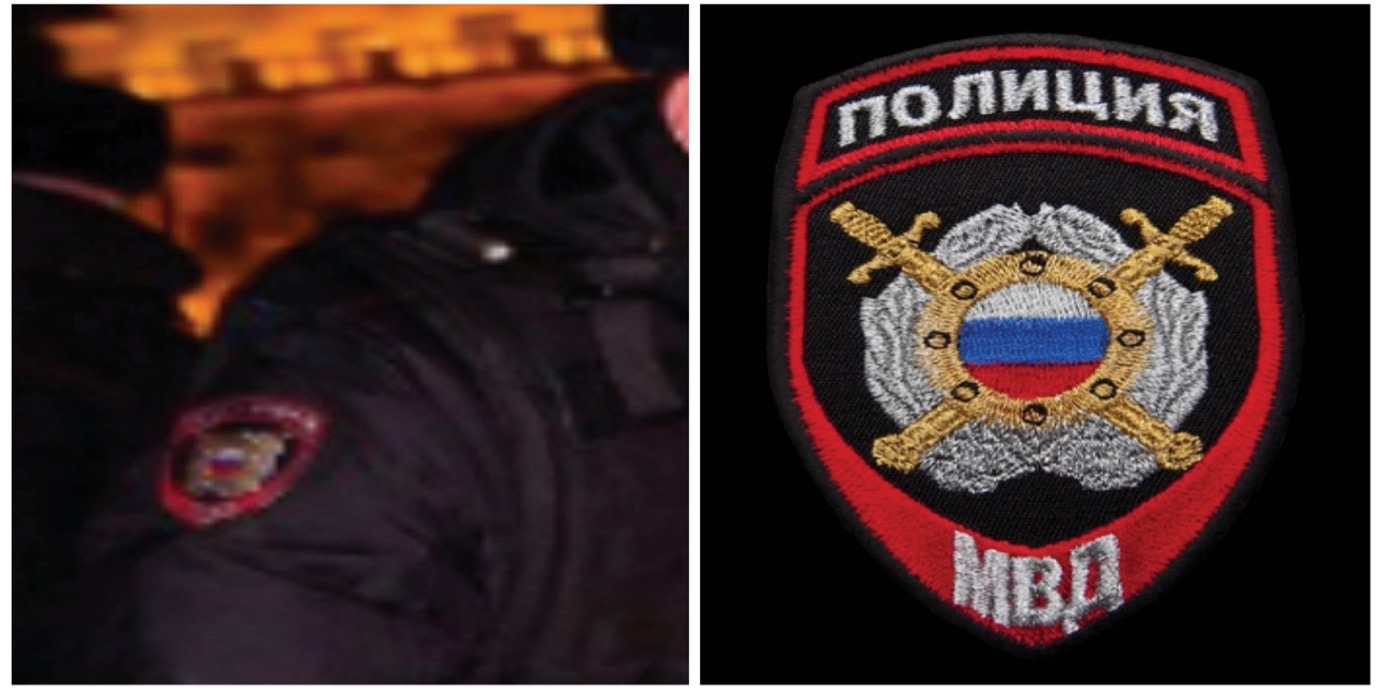Russian-language Telegram channels foment tensions in Georgia
Telegram channels posting unverified content exacerbate political grievances between pro-Western and pro-Russian Georgians
Russian-language Telegram channels foment tensions in Georgia
Share this story

BANNER: Fireworks explode outside the Georgian parliament building in Tbilisi as protesters attempt to break through barrier constructions during a rally against the bill known as the foreign agents law, March 8, 2023. (Source: Reuters/Irakli Gedenidze)
Russian-language Telegram channels focusing on Georgia are disseminating unverified videos that could incite further tensions within the country. There are also unconfirmed but credible reports that malign actors have sought to utilize Telegram to organize counter-rallies in Georgia, potentially with the intention of fomenting greater tensions between pro-Western and pro-Russian Georgians.
Following Russia’s declaration of a partial mobilization of military reservists in September 2022, a large number of Russians moved to Georgia in order to evade military conscription. In the initial nine months of 2023, over 1.5 million Russian citizens crossed the Georgian border; by November 2023, it was estimated that at least 40,000 Russians were still in Georgia. Georgian analysts have expressed concern about the significant influx of Russians into Georgia, citing multiple risks to the country’s national security, arguing that the arrival of a large number of Russians may create opportunities for subversive groups to infiltrate Georgia, potentially causing disturbances and posing a threat to the nation’s security.
Additionally, analysts are apprehensive about the potential challenges presented by the coexistence of Ukrainian refugees and Russian migrants within Georgia, fearing the emergence of civil conflicts. Moreover, there are concerns about the long-term risk of Russian aggression against Georgia, for which the large population of Russians might present a pretext for an invasion, for example. In view of this, the DFRLab found that unverified information circulating on Russian-language Telegram about Georgia has the potential to create or amplify a multitude of tensions in Georgia.
In March 2023, 79 percent of Georgians held the view that Russians should not be able to enter Georgia without a visa, and that Russians should not be permitted to register businesses and purchase property in the country. At the time of publishing on May 1, 2024, tensions are again spiking due to the Georgian government’s re-introduction of its foreign agents bill, leading to massive protests in Tbilisi and other parts of the country.
Unverified videos posted by anti-Kremlin Telegram channels, seemingly connected to Ukraine
In 2023, Russian-language Telegram channels Труха🇬🇪Georgia (“Trukha Georgia”) and Грузия 24 | Georgia 24 | საქართველო (“Georgia 24”) posted a number of suspicious and unverified videos. The first, Trukha Georgia, was created in March 2023 amidst large-scale protests in Tbilisi against Georgian Parliament’s initial attempted enactment of the foreign agents law. (The law was withdrawn following the protests in March 2023, but the ruling Georgian Dream party declared in early April 2024 that it intends to reintroduce the bill.) The channel’s name bears resemblance to the one of the largest Ukrainian Telegram channels, Труха⚡️Україна, (“Trukha Ukraine”), which boasted over 2.5 million subscribers at the time of publishing. The DFRLab found several posts from Trukha Ukraine saying that the Trukha Georgia channel belongs to the Ukrainian network. Furthermore, a post in the Trukha Georgia channel mentioned that Georgians “remember us” [emphasis added], hinting that channel may be managed by a Ukrainian national or nationals. The channel predominantly features anti-Russian content, denouncing Russia as an occupier of Georgian lands, a reference to its presence in the breakaway regions of Abkhazia and South Ossetia. Trukha Ukraine has previously been accused of spreading inaccurate information.
Meanwhile, the second Telegram channel, Georgia 24, posts content that is both anti-Russian and critical of the Georgian government. The channel also supported the storming of the Georgian parliament in March 2023 during a protest against the foreign agents law. It called on people to participate in the storming of the parliament, including posting multiple videos with captions urging individuals not to be afraid of police.

The Georgia 24 Telegram channel was created in October 2021. The people behind it also appear to manage a Facebook page by the same name. On March 8, 2023, the Facebook page asked its followers to join the Telegram channel to see “18+ materials” from the protest. According to its transparency page, its admins are based in Ukraine, Armenia, and the United States.

While the transparency page does not include Georgia among its admins, the page lists itself as being based in Tbilisi, Georgia, potentially an attempt to mislead users about its origins.
During the March 2023 protests, Georgia 24 posted a photo allegedly depicting a policeman with a Russian police patch on their shoulder, taken as the police dispersed the protesters. The post claimed that Georgian police had been reinforced by “Russian pigs” and suggested that at least twenty policemen were wearing this badge during the Tbilisi protests. The DFRLab could find no verifiable reports confirming the presence of Russian police in Tbilisi during the 2023 protests, though the shoulder patch in question does share a general resemblance with Russian police patches.

Five minutes after the initial post, the Trukha Georgia channel posted the same picture, with the text, “I don’t even know how to comment on this.” Less than an hour later, the Georgia 24 Telegram channel published a post urging people to “overturn police cars” because there were allegedly Russians among them.
The DFRLab was unable to geolocate the photo using a reverse image search, and the background details were similarly inadequate for confirming where the photo was taken. Nevertheless, a peculiar aspect of the photo is the police officers dressed in winter attire, including winter jackets and fur hats, suggesting the photo was probably taken on a day with a lower temperature than the 13C (55.4F) temperature in Georgia on March 8. So while its provenance remains disputed, spreading an unverified photo claiming to show a Russian police presence in Tbilisi could have intensified the anger among protesters, as many were monitoring the internet while in attendance.
Five days later on March 13, the Georgia 24 Telegram channel published a video featuring four men and claimed they were Russian citizens residing in Georgia. In the video, these individuals can be seen appealing to the Russian Ministry of Defense, requesting the deployment of Russian peacekeepers to Georgia. The speaker in the video alleges that their rights are being violated in Georgia and expresses concern that if the protests succeed, Russians would no longer be able to live peacefully in Georgia. Georgia 24 posted the video alongside comments in Georgian and Russian saying that Russians should just leave Georgia and go back to Russia, and expressed anger that Russians were asking the Russian government to deploy peacekeepers to Georgia. The Telegram channel, however, did not provide any information about the identities of the individuals featured in the video or verify its authenticity. The video was taken in a low-light environment, and one of the men is wearing a face mask, making identification of the men difficult. Around two hours later, Trukha Georgia posted the same video and claimed without evidence that this was “a real face of a Russian man.”
The following day, Trukha Georgia published a follow-up video in which a man in a face mask declares in Georgian, “They think Georgia belongs to Russia, but they are very wrong.” He then throws a Molotov cocktail and burns a Russian flag hanging on the side of a house. “Georgian responded to Russians regarding deployment of troops,” the post added. Around one hour later, Georgia 24 posted the same video alongside a caption mentioning that the channel administrators received this video from one of their subscribers and that it serves as a response to the previous day’s statement by Russian citizens on the deployment of Russian peacekeepers. Georgia 24 then claimed a subscriber had sent them the video and stated that Russians would find themselves burning just like the flag in the footage. While the true source of the video remains unclear, its inflammatory nature (both literal and figurative) could have further stoked Georgian-Russian tensions.
On August 2, 2023, the Georgia 24 Telegram channel released a video featuring an individual it claimed was a Russian expatriate in Georgia. The person says in Russian that he wanted to stab a Georgian who told him to return to Russia. He added that Georgians fail to comprehend the substantial presence of Russian citizens in Georgia and warned that if Russians unite against Georgians, they would “shake everything” in the country without facing any consequences. The post then urged Georgian law enforcement to take notice of him. Two hours later, Trukha Georgia published the same video alongside text saying that the “policy of patience” toward Russia from Georgia’s ruling party “is bearing fruit” and that the man in a video would “move to actions” soon. Thus, both channels asserted that the man in the video was Russian without questioning whether he was truly a Russian expatriate in Georgia.
That same day, the Telegram channel OSINT Georgia, which is run by Irakli Komakhidze, the pro-Ukraine co-founder of the volunteer group InformNapalm, claimed that the person seen in the video was a Ukrainian living in Kyiv. While the man’s motive remains unknown, OSINT Georgia asserted he was spewing pro-Russian talking points in an effort to incite Georgian hatred against Russians. Later on, Trukha Georgia acknowledged the OSINT Georgia post and added without evidence that the person in the video “works with Russians to incite hatred.”
Did hostile actors organize pro- and anti-Russian rallies in Tbilisi?
The DFRLab also found posts to Telegram channels that appear to be operated by hostile actors attempting to use the platform to foment tensions in Georgia. More specifically, it seems that these channels tried to schedule anti-Russian and pro-Russian rallies in Georgia at the same location and time.
According to the Paper Kartuli, a Georgia-focused Telegram channel, the anonymous Russian-language Telegram channel Svobodnaya GruZiya (Свободная ГруZия, “Free Georgia”) emerged on Telegram on September 28, 2022, when it announced a September 30 rally in support of Russia annexing occupied Ukrainian territory. (Notably, the channel’s name includes an uppercase “Z,” a common pro-war symbol in Russia.) Paper Kartuli, which is managed by the team behind Russian independent media outlet Bumaga, reported that the Free Georgia post also proposed giving Russians equal rights in Georgia, introducing the ruble there, and establishing Russian as a second national language. Paper Kartuli also shared two videos reportedly depicting people waving Ukrainian flags at the September 30 rally. The videos appear to have been filmed in Tbilisi’s Liberty Square, and metadata suggests they were recorded on September 30, as reported by Paper Kartuli. According to the outlet, the Free Georgia channel reportedly ceased operations on September 29, not long after posting the event announcement.
Separately, on September 30, 2022, Russian-language Telegram channel Novosti v Gruzii | ZhBG | Tbilisi (Новости в Грузии | ЖВГ | Тбилиси, or “News in Georgia | ZHVG | Tbilisi”), posted a screenshot of a Facebook post from Egor Kuroptev, director of the Free Russia Foundation’s South Caucasus office. In the Facebook post, Kuroptev said that a second Russian-language Telegram channel named Svobodnaya Gruziya (“Free Georgia” in English, but without the pro-war Z symbol) had also announced a rally at the same location, but this one would be pro-Ukraine and anti-Putin. Kureptev added that the post was designed to attract pro-Ukraine protesters and cause them to encounter pro-Russian “radicals” when they arrived.
The DFRLab could not corroborate the story, as neither version of Free Georgia is currently online. The only sources came from additional Telegram channels discussing the incident. Kuroptev’s Facebook post is also longer available. According to Paper Kartuli, the anticipated pro-Russian protesters never showed up, while a group of individuals with Ukrainian flags gathered in front of the Freedom Monument, chanting slogans such as “Glory to Ukraine” and “Glory to Georgia.”
Cite this case study:
Givi Gigitashvili, “Russian-language Telegram channels foment tensions in Georgia,” Digital Forensic Research Lab (DFRLab), May 1, 2024, https://dfrlab.org/2024/05/01/russian-language-telegram-channels-foment-tensions-in-georgia/.

